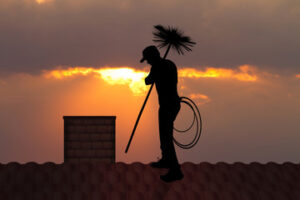The Importance of a Chimney Sweep
Having your chimney swept regularly is very important if you want to prevent damage to your chimney. This is especially true if you have pets or other animals, as they can get clogged up with debris. A sweep will also check for defects and clean out the creosote. Having this service done regularly will also help you avoid costly repairs down the road. Having your chimney cleaned by a professional will protect your family from the hazards of a chimney fire. Chimney Sweep will remove soot, debris, and creosote from your chimney. They also have the necessary equipment to clean your chimney safely.
 The National Fire Protection Association recommends that your chimney be cleaned at least once a year. If you have never cleaned your chimney before, it is best to have it cleaned by a professional. A professional can also advise you on how to keep your chimney safe. A professional will remove creosote and soot from your chimney so your heating system will operate safely. The cleaning process can take a few hours.
The National Fire Protection Association recommends that your chimney be cleaned at least once a year. If you have never cleaned your chimney before, it is best to have it cleaned by a professional. A professional can also advise you on how to keep your chimney safe. A professional will remove creosote and soot from your chimney so your heating system will operate safely. The cleaning process can take a few hours.
A professional will also be able to spot problem areas in your chimney. They may need to apply a chemical treatment to change the nature of the creosote. They may also need to make minor repairs. When cleaning your chimney, you should use gloves and a dust mask to protect your family’s health. You should also make sure that you choose a day with little wind. Strong gusts can push debris into your home.
Performing a proper inspection of your chimney is important. The process can reveal key defects that need to be addressed. These defects can be expensive to fix and can be a fire hazard. An inspection of the chimney should include a good look at the flue liner. It should be checked for creosote deposits. Creosote is a buildup of incomplete combustion, which is a fire hazard.
The chimney may also need to be cleaned regularly. This is necessary to prevent foul odors and smoke from leaking into the home. It’s also important to check the smoke detectors and carbon monoxide detectors. These items may need to be replaced if they are in bad condition. Another important component of a chimney is its exterior. The chimney “crown” is an important part of the structure, which can be susceptible to moisture damage. Cracks in the crown and the mortar surrounding it can indicate moisture damage.
Whether you have a gas or wood-burning fireplace, you may be asking yourself how to remove creosote from your chimney. There are several different ways to do so, so it’s important to know which ones are the best for you. Using a chimney sweep brush is a good place to start. You can also use a pressure washer to remove creosote. While this method is effective, it can also lead to a fire. If you are cleaning your fireplace, make sure to open the door to allow airflow. If you have furniture in the room, tarps can help protect it from the smoke.
Depending on the type of creosote in your chimney, you will need the right chemical for the job. There are several different types of chemicals you can use to remove creosote. They are available at your local hardware store. For the best results, you should use a professional chimney cleaning service. They can help you identify the source of your creosote buildup. Depending on the severity of the buildup, you may need to use more than one chemical.
Whether you are just getting your chimney ready for winter or suspecting a problem with your chimney, you should hire a certified chimney sweep. The Chimney Safety Institute of America is an organization that teaches homeowners and chimney professionals how to protect themselves and their families. In addition to providing homeowners with the information they need to manage their chimneys safely, CSIA also certifies chimney sweeps. Chimney sweeps who earn certification are trained to avoid business practices that can put homeowners at risk.
Chimney sweeps must complete training and standardized exams to earn CSIA certification. In addition to this, sweeps must also sign a code of ethics. The CSIA code of ethics outlines professional conduct at industry events and on the job. Those who violate the CSIA code of ethics will have their certification revoked. Chimney sweeps must also maintain certification to keep their skills sharp. Certified sweeps have access to continuing education opportunities, allowing them to stay abreast of industry developments.




